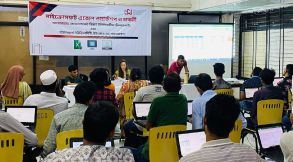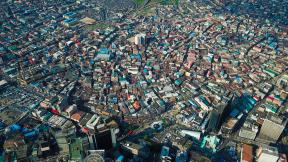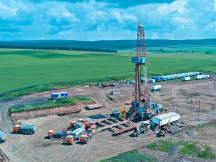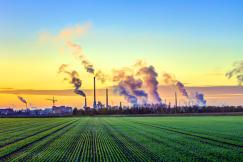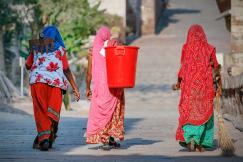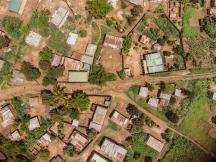Sub-Saharan Africa's rural population accounts for 61.4% of the total population (FAOSTAT), and more than 60% of the population are smallholder farmers. However, Africa's agricultural productivity remains low compared to its potential. In Nigeria, agriculture contributes 22.4% of total gross domestic product and over 70% of Nigerians work in the agricultural sector at a subsistence level (FAO). In addition to the inverse relationship between land size and productivity, agricultural productivity in Nigeria is also constrained by limited access to input and output markets, climate-related shocks (droughts, floods, heat waves), and pollution. This research examines the impact of air pollution from gas flaring on agricultural productivity in Nigeria. Nigeria is Africa's largest oil producer and the largest gas flaring country in sub-Saharan Africa. These gas flaring activities are located in the Niger Delta region of the country.
We will examine the impact of gas flaring on agricultural productivity by estimating an agricultural production function to examine how total factor productivity is affected by exposure to gas flaring. We will use micro data from the Nigerian LSMS household surveys to estimate the production function, and detailed data on the location of gas flare wells within a local government area (LGA) and their total monthly production to proxy for pollution within each LGA. Our estimation method uses a difference-in-differences approach to examine the impact of gas flare pollution on the agricultural productivity of farmers in gas-flaring LGAs compared to those in non-flaring LGAs. However, this method faces two empirical challenges. To address endogeneity issues caused due to omitted variable bias, we will use two sources of variation, such as the distance of households to the nearest gas flaring well and changes in gas flare production. Secondly, to address the issue of reverse causality between input and output choices, and productivity, we include farmer characteristics and district fixed effects to proxy for heterogeneity and capture productivity differences due to the characteristics of local government areas in Nigeria.
The agricultural sector is a major policy focus, particularly in developing countries. This is related not only to issues of labour employment, but also to volatile food prices that lead to conflict in Africa. Thus, a plausible policy objective is to understand the increasing role of natural resources in the macroeconomy and the possible constraints on agricultural development. The lack of a careful assessment of the environmental costs, such as air pollution, of extractive industries on agricultural productivity in developing countries is an oversight in the policy debate. In addition, this issue is closely linked to political economy issues, particularly related to natural resource extraction, that determine investment choices in agriculture or other sectors.




